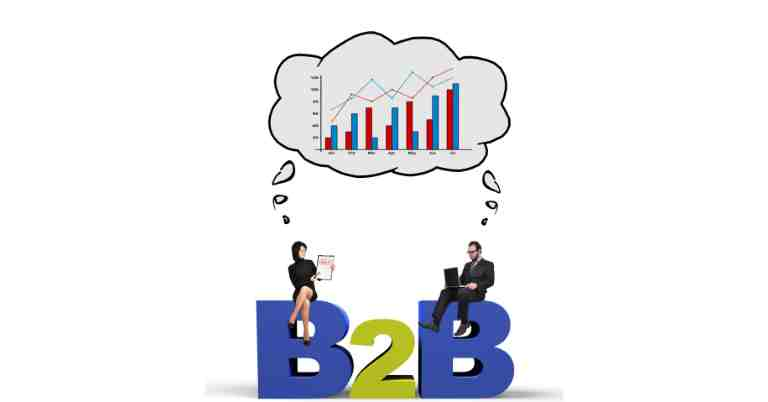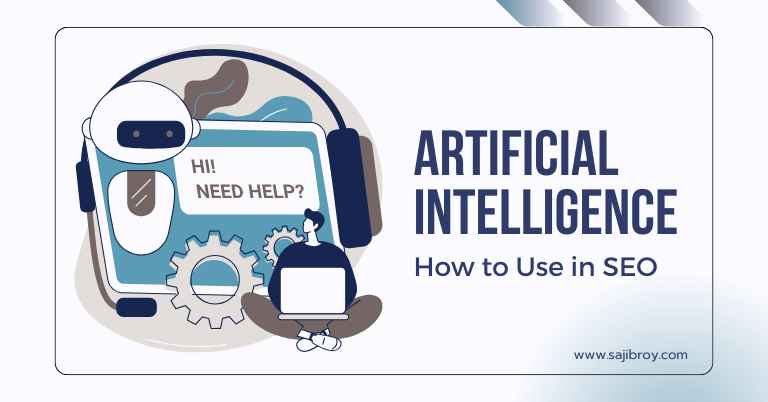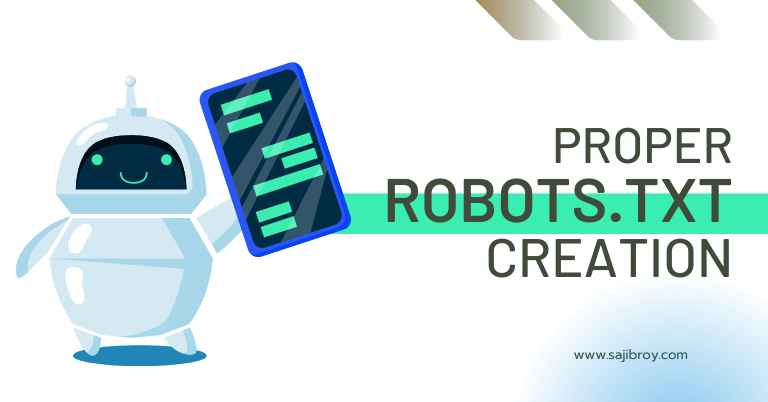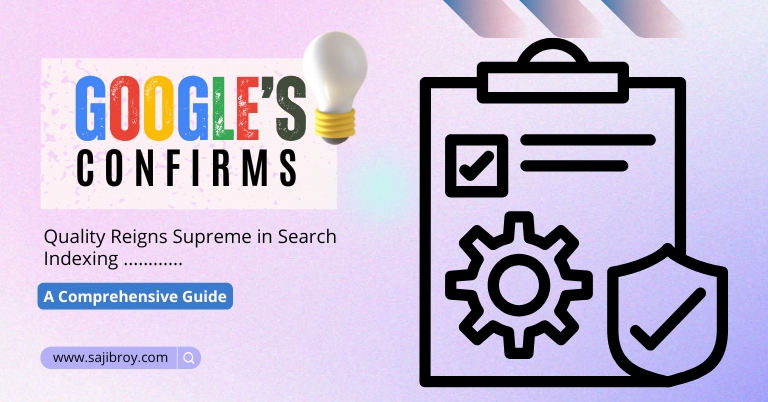B2B marketing focuses on selling products or services to businesses, while B2C marketing targets individual consumers. Business-to-business (B2B) and business-to-consumer (B2C) marketing strategies differ significantly due to their target audiences and purchasing behaviors.
B2B marketing concentrates on appealing to other companies, aiming to establish long-term relationships and meet their specific needs. In contrast, B2C marketing endeavors to captivate individual consumers, often focusing on emotions and personal preferences. By understanding the main distinctions between these two approaches, businesses can tailor their marketing tactics effectively and maximize their reach within the respective sectors.
This article explores the key differences between B2B and B2C marketing, shedding light on areas such as customer decision-making, brand messaging, relationship building, and market segmentation. By exploring these aspects, businesses can fine-tune their marketing strategies to meet the specific demands of either B2B or B2C environments.

Let's See the Topic Overview
Understanding B2B Marketing
B2B and B2C marketing differ primarily in their target audience and approach. B2B focuses on selling products or services to other businesses, emphasizing long-term relationships and personalized solutions, whereas B2C targets individual consumers, showcasing emotional appeal and mass marketing tactics.
Ultimately, understanding these distinctions is key to developing effective marketing strategies in each context.
B2B marketing defined:
B2B marketing refers to the strategies and tactics used to promote products or services between businesses. Unlike B2C (business-to-consumer) marketing, which is focused on selling to individual consumers, B2B marketing is targeted at businesses and professionals. It involves building relationships, providing value, and establishing trust with other companies in order to generate leads and secure long-term profitable partnerships.
Target audience in B2B marketing:
- Businesses: The primary target audience in B2B marketing is other businesses. These can range from small startups to large corporations and can be in various industries.
- Decision-makers: B2B marketing often targets individuals who have the power and authority to make purchasing decisions within a company. These decision-makers can be executives, managers, or department heads.
- Professionals: B2B marketing may also focus on professionals within a business who influence purchasing decisions. These could be experts in specific fields or employees responsible for researching and recommending products or services.
Importance of building relationships in B2B marketing:
- Trust and credibility: Building strong relationships is crucial in B2B marketing because businesses want to work with companies they trust and perceive as credible. By establishing relationships, businesses can gain the confidence of potential partners, increasing the likelihood of successful transactions.
- Long-term partnerships: B2B marketing aims to foster long-term partnerships rather than one-time transactions. Building relationships allows businesses to cultivate loyal customers who are more likely to continue doing business and potentially refer others.
- Personalized solutions: B2B marketing often involves providing tailored solutions to meet the unique needs of businesses. By understanding individual needs and maintaining relationships, companies can offer personalized products or services that cater to specific challenges or goals.
- Referrals and recommendations: Strong relationships can also lead to referrals and recommendations within professional networks. Satisfied customers are more likely to recommend a trusted partner to others in their industry, potentially generating new business opportunities.
B2B marketing is all about understanding the needs of businesses, cultivating relationships, and providing tailored solutions. By targeting the right audience, focusing on building trust and credibility, and nurturing long-term partnerships, companies can thrive in the B2B marketplace.
Strategies In B2B Marketing
B2B and B2C marketing strategies differ significantly. While B2B focuses on building relationships and trust, B2C emphasizes emotions and impulse buying. Understanding these variations is crucial for effective marketing in each domain.
Personalized Approach In B2B Marketing
- In B2B marketing, a personalized approach is crucial for building strong relationships with potential clients. This means tailoring your marketing strategies to meet the specific needs and preferences of each individual business.
- By understanding your target audience on a deeper level, you can effectively communicate how your product or service can address their pain points and provide tailored solutions.
- Some ways to implement a personalized approach in B2B marketing include:
- Customized messaging: Craft targeted messages that speak directly to the challenges and goals of your target businesses. This can be done through personalized email campaigns or by creating specific landing pages that address their pain points.
- Account-based marketing (ABM): ABM is a strategy that focuses on targeting specific accounts rather than a wide audience. By identifying high-value accounts and providing them with personalized experiences, you can enhance engagement and increase the chances of conversion.
- Personalized content: Develop content that caters to the specific needs and interests of your target businesses. This can include case studies, whitepapers, or industry-specific blog posts that showcase your expertise and provide valuable insights.
Utilizing Data And Analytics For Targeting In B2B Marketing
- Data and analytics play a vital role in B2B marketing by providing valuable insights into your target audience and helping you make informed strategic decisions. By leveraging data, you can optimize your marketing campaigns and target your efforts more effectively.
- Here are some key strategies for utilizing data and analytics in B2B marketing:
- Audience segmentation: By dividing your target audience into distinct segments based on demographics, behavioral patterns, or industry verticals, you can create targeted campaigns that resonate with each segment.
- Lead scoring: Implement a lead scoring system to prioritize your leads based on their engagement level, demographics, and other relevant factors. This enables you to focus your efforts on the most qualified leads and increase conversion rates.
- Marketing automation: Utilize marketing automation platforms to streamline your processes and collect valuable data on customer behavior. This can help you track and analyze your campaign performance, identify trends, and optimize your marketing strategies.
- A/B testing: Experiment with different variations of your marketing campaigns to determine which strategies yield the best results. By testing and analyzing the data, you can refine your approach and maximize your marketing ROI.
Importance Of Thought Leadership In B2B Marketing
- Thought leadership plays a crucial role in establishing trust, credibility, and authority in B2B marketing. By positioning your brand as a trusted industry expert, you can attract and retain customers who value your expertise. Here’s why thought leadership is important:
- Building trust and credibility: Thought leaders are seen as trusted advisors who provide valuable insights and guidance. By consistently sharing valuable knowledge and expertise, you can build trust with potential customers and differentiate yourself from competitors.
- Driving brand awareness: Thought leadership enables you to increase brand visibility and gain recognition within your industry. By sharing valuable content through blogs, social media, and industry events, you can become a go-to resource for your target audience.
- Generating leads and fostering relationships: When you establish yourself as a thought leader, you attract a high-quality audience who are genuinely interested in your insights and solutions. This not only generates leads but also fosters long-term relationships with your audience.
- Influencing purchasing decisions: Thought leaders have the power to influence the buying decisions of their audience. By providing valuable insights and thought-provoking content, you can position your brand as the preferred choice when it comes to purchasing decisions.
B2B marketing requires a personalized approach, utilization of data and analytics, and a focus on thought leadership. By implementing these strategies, businesses can effectively connect with their target audience, drive conversions, and establish themselves as industry leaders.
B2B Marketing Channels
B2B and B2C marketing differ in their target audience and communication channels. B2B focuses on selling products or services to other businesses, relying on more formal and specialized channels like industry events and online catalogs. On the other hand, B2C marketing is consumer-oriented, using platforms such as social media, television, and retail stores to reach individuals.
In the world of marketing, the channels used to reach the target audience play a crucial role in determining the success of a campaign. When it comes to B2B marketing, the approach differs significantly from B2C marketing due to the nature of the target audience and their preferences.
In this section, we will explore some of the main B2B marketing channels and how they are utilized effectively.
Utilizing LinkedIn for B2B Marketing:
- LinkedIn is a powerful social media platform that is widely used by professionals in various industries. Leveraging this platform for B2B marketing can yield great results. Here’s how:
- Build a strong LinkedIn profile for your company: Create a professional and comprehensive company page that highlights your expertise and showcases your products or services.
- Join relevant LinkedIn groups: Be an active participant in groups relevant to your industry. Engage in discussions, share valuable insights, and establish yourself as a thought leader.
- Utilize targeted advertising: LinkedIn offers robust targeting options for B2B marketers. Take advantage of this by running targeted ads to reach your desired audience based on criteria such as job title, industry, and company size.
- Create and share content: LinkedIn provides opportunities to share content through articles and posts. Create informative and engaging content that resonates with your target audience, and share it on your company page and relevant groups.
Importance Of Email Marketing In B2B:
- Email marketing remains a crucial channel in B2B marketing. It allows for direct communication with potential and existing clients, nurturing relationships and driving engagement. Here’s why email marketing is important for B2B:
- Personalized communication: Through email, you can tailor your messages to cater to the specific needs and interests of individual prospects or clients. This personalized approach helps build trust and strengthens relationships.
- Lead nurturing: Email marketing enables you to guide prospects through the buyer’s journey, providing them with relevant content at each stage. By delivering valuable information and addressing pain points, you can nurture leads and move them closer to making a purchase.
- Retention and upselling: Emails also play a crucial role in customer retention and encouraging repeat business. By staying in touch with existing clients and providing them with exclusive content or offers, you can strengthen loyalty and upsell additional products or services.
Leveraging Industry Events And Conferences In B2B Marketing:
- Industry events and conferences provide excellent opportunities for B2B marketers to connect with potential leads, showcase their expertise, and network with industry professionals. Here’s how you can leverage such events effectively:
- Participate as a speaker or sponsor: By speaking at relevant conferences or sponsoring industry events, you can position your company as a key player in your field. This enhances your brand visibility and helps you reach a targeted audience.
- Provide valuable resources: Offer valuable resources such as whitepapers, case studies, or reports at events. This not only helps establish your authority, but also captures interested leads who are likely to engage further with your brand.
- Network strategically: Take advantage of networking opportunities at events to build relationships with potential clients, partners, and influencers. Be genuine, engage in meaningful conversations, and follow up afterward to nurture those connections.
- Share your experiences: Leverage social media platforms and your website to share your experiences and insights from industry events. This helps generate buzz, positions you as an industry expert, and attracts more interest in your brand.
By utilizing channels such as LinkedIn, email marketing, and industry events, B2B marketers can effectively reach their target audience, nurture relationships, and drive business growth. Understanding the unique characteristics of these channels and tailoring strategies accordingly can significantly impact the success of your B2B marketing efforts.

Understanding B2C Marketing
B2B and B2C marketing have significant differences. B2B marketing focuses on building relationships with other businesses, while B2C marketing targets individual consumers. The strategies, target audience, and messaging vary greatly between the two.
B2C Marketing Defined:
- B2C marketing refers to the strategies and tactics that businesses use to sell their products or services directly to individual consumers.
- It involves understanding and catering to the needs, preferences, and motivations of the target consumer base.
- B2C marketing focuses on creating emotional connections and building brand loyalty to drive consumer purchasing decisions.
Target Audience In B2C Marketing:
- B2C marketing primarily targets individual consumers, including households and individuals.
- The target audience can vary based on factors such as demographics, lifestyle, psychographics, and behavior.
- Businesses aim to identify the ideal consumer segment that aligns with their products or services and devise marketing strategies to reach and engage this audience.
Importance Of Emotional Appeal In B2C Marketing:
- Building an emotional connection with consumers is vital in B2C marketing as it influences their purchasing decisions.
- Emotions play a significant role in driving consumer behavior and establishing brand loyalty.
- By appealing to their emotions, businesses can create memorable experiences and forge a strong bond with their consumers, increasing the likelihood of repeat purchases and brand advocacy.
B2C marketing is all about understanding and targeting individual consumers, making emotional connections, and creating lasting brand loyalty. With a clear focus on the target audience and an emphasis on emotional appeal, businesses can effectively engage consumers and drive their purchasing decisions.
Strategies In B2C Marketing
B2B and B2C marketing have significant differences. In B2B, the focus is on building professional relationships and providing tailored solutions, while B2C is more about appealing to individual consumers and creating emotional connections.
Mass Marketing Approach In B2C Marketing
B2C marketing strategies differ from B2B marketing strategies in several ways. One of the key distinctions is the mass marketing approach employed in B2C marketing. Here are some key aspects of the mass marketing approach in B2C marketing:
- Wide target audience: B2C marketing typically targets a large and diverse group of consumers. Instead of focusing on a specific niche or industry, B2C marketers cast a wide net to capture the attention of a broad consumer base.
- Product-driven messaging: In B2C marketing, the emphasis is on product features, benefits, and emotional appeal. Marketers prioritize creating captivating advertising campaigns that resonate with the target audience’s desires and aspirations.
- Mass media channels: B2C marketers leverage widely accessible mass media channels to reach a large number of consumers. Traditional channels like television, radio, magazines, and newspapers, as well as digital platforms like websites and mobile apps, are vital for maximizing exposure.
- Creative and visually appealing content: B2C marketing relies heavily on eye-catching visuals, engaging storytelling, and compelling narratives to capture consumers’ attention. Memorable advertisements, jingles, and slogans play a crucial role in establishing brand awareness and recall.
Utilizing Social Media For B2C Marketing
Social media has transformed the landscape of B2C marketing, providing businesses with direct and in-depth access to their target audience. Here are some ways in which social media is utilized for B2C marketing:
- Building brand presence: Social media platforms offer businesses an opportunity to establish and enhance their brand presence. By creating engaging profiles and sharing compelling content, businesses can build a loyal following and effectively communicate their brand message.
- Targeted advertising: Social media platforms enable B2C marketers to reach specific groups of consumers based on demographics, interests, and behaviors. This allows for more precise targeting and more cost-effective advertising campaigns.
- Engaging with customers: Social media provides a direct channel for businesses to interact with their customers, receive feedback, and address inquiries or concerns in real-time. This level of engagement helps build customer relationships and fosters brand loyalty.
- Creating viral marketing campaigns: Social media’s viral nature allows B2C marketers to create captivating campaigns that quickly spread across platforms, reaching massive audiences at a fraction of the cost compared to traditional advertising methods.
Importance Of Storytelling In B2C Marketing
Storytelling is an essential element in B2C marketing as it helps businesses connect with consumers on an emotional level and create lasting impressions. Here are reasons why storytelling plays a crucial role in B2C marketing:
- Eliciting emotions: By weaving narratives around their products or services, B2C marketers can evoke emotions such as joy, nostalgia, or excitement. These emotional connections help consumers form a deeper bond with the brand.
- Differentiation and brand identity: Storytelling allows businesses to distinguish themselves from competitors by showcasing their unique brand values, mission, and purpose. A compelling brand story helps consumers associate specific qualities and characteristics with the brand.
- Engaging and memorable content: Stories have a natural ability to captivate and hold attention. By leveraging storytelling techniques, B2C marketers can create content that consumers find more engaging and memorable.
- Generating customer loyalty: Through storytelling, businesses can solidify their relationship with customers and foster loyalty. A well-told brand story can make customers feel like they are part of a vibrant community or movement, leading to long-term customer loyalty.
Remember, the success of B2C marketing relies on a combination of effective mass marketing strategies, leveraging the power of social media, and utilizing the art of storytelling to create meaningful connections with consumers.
B2C Marketing Channels
B2B and B2C marketing differ in many ways, particularly in terms of marketing channels. B2C focuses on direct, mass-market advertising through channels like TV, radio, and social media, while B2B marketing targets a more specific audience through trade shows, industry events, and email campaigns.
B2C marketing channels are integral to reaching and engaging with consumers in the business-to-consumer marketplace. These channels play a crucial role in promoting products or services to individual customers, driving sales, and establishing brand loyalty. In this section, we will explore three key aspects of B2C marketing channels: leveraging influencers, the importance of mobile marketing, and utilizing customer reviews and testimonials.
Leveraging Influencers In B2C Marketing:
- Influencer marketing has become a powerful strategy for B2C businesses to increase brand awareness and reach their target audience. By collaborating with influencers, brands can tap into their credibility and strong online presence to promote their products or services.
- Influencers can create buzz around a brand by showcasing their experience with the product, posting authentic reviews, or providing product recommendations to their followers.
- The key advantage of leveraging influencers is the ability to reach a highly targeted audience that is likely to be interested in the brand’s offerings. This can significantly boost sales and improve brand perception.
Importance Of Mobile Marketing In B2C:
- In today’s digital age, mobile marketing is vital for B2C businesses to connect with their customers. With the increasing use of smartphones and mobile devices, brands must optimize their marketing strategies for mobile platforms.
- Mobile marketing allows businesses to reach customers on-the-go, deliver personalized content, and offer convenient shopping experiences through mobile apps or responsive websites.
- By investing in mobile marketing tactics such as SMS marketing, mobile advertising, and mobile-friendly website design, brands can capture the attention of their target audience and enhance the overall customer experience.
Utilizing Customer Reviews And Testimonials In B2C Marketing:
- Customer reviews and testimonials are powerful tools for B2C businesses, as they provide social proof and build trust among potential customers. Positive reviews and testimonials can influence a consumer’s purchasing decision and validate the quality and reliability of the brand’s offerings.
- By displaying customer reviews prominently on their websites or incorporating them into marketing campaigns, businesses can leverage the positive experiences of satisfied customers to attract new buyers.
- Additionally, businesses can encourage customers to leave reviews or provide testimonials by offering incentives or engaging with them through social media platforms. This proactive approach can help generate a continuous stream of positive feedback, enhancing the brand’s reputation and credibility.
By leveraging influencers, embracing mobile marketing, and utilizing customer reviews and testimonials, B2C businesses can effectively connect with their target audience, build brand loyalty, and drive sales. These marketing channels provide valuable opportunities for companies to establish a strong online presence and establish meaningful connections with their customers.
Key Differences Between B2B And B2C Marketing
B2B marketing focuses on selling products or services to other businesses, while B2C marketing targets individual consumers. The key differences lie in the target audience, messaging, and purchasing process. Businesses need to tailor their marketing strategies to these distinct customer segments to drive success.
Focus On Long-Term Relationships Vs. Immediate Sales
In B2B marketing, building and nurturing long-term relationships with clients is crucial. The focus is not just on making immediate sales but also on establishing trust and fostering enduring partnerships. On the other hand, B2C marketing typically revolves around driving immediate sales and transactions.
Some key differences between B2B and B2C marketing in terms of the focus on long-term relationships versus immediate sales include:
- B2B marketing:
- Emphasizes building and maintaining relationships with key decision-makers and stakeholders.
- Requires a longer sales cycle due to the complexity of the purchasing process in B2B transactions.
- Focuses on addressing the specific needs, pain points, and objectives of business clients.
- Nurtures relationships through ongoing communication, personalized solutions, and superior customer service.
- Aims to establish trust, credibility, and loyalty to drive repeat business and long-term partnerships.
- B2C marketing:
- Concentrates on capturing the immediate attention of individual consumers.
- Typically involves shorter sales cycles as purchasing decisions are often impulsive or based on personal preferences.
- Relies on mass marketing techniques to reach a larger target audience.
- Offers products or services tailored to individual tastes and preferences.
- Focuses on creating memorable customer experiences to encourage repeat purchases and brand loyalty.
While both B2B and B2C marketing ultimately aim to generate revenue, the approach and strategies differ based on the target audience and their unique expectations and requirements. Establishing lasting relationships is essential in B2B marketing, whereas B2C marketing tends to prioritize immediate sales to individual consumers.
Similarities Between B2B And B2C Marketing
B2B and B2C marketing share similarities, such as the importance of branding, understanding customer needs, and developing effective messaging. However, key differences lie in target audience, purchase decision journey, and the use of different marketing channels and tactics to reach and engage customers.
The world of marketing is a vast and dynamic one, encompassing various strategies and approaches tailored to different audiences. Two key branches of marketing are Business-to-Business (B2B) and Business-to-Consumer (B2C), each catering to distinct customer segments. While there are several differences between these two forms of marketing, it is essential to note the similarities they share.
Understanding the commonalities between B2B and B2C marketing is vital for marketers to execute successful campaigns and drive positive outcomes.
Importance Of Understanding Customer Needs
To effectively engage customers, both B2B and B2C marketing rely on understanding their needs and preferences. By recognizing what motivates their target audience, marketers can tailor their strategies and messaging accordingly. Here are some ways in which B2B and B2C marketing tap into customer needs:
- Identifying pain points: Both B2B and B2C marketers strive to comprehend the challenges and problems their customers face. By acknowledging these pain points, they can position their products or services as solutions that address specific needs.
- Creating buyer personas: B2B and B2C marketers use buyer personas to develop a deeper understanding of their target customers. These personas represent fictional characters embodying the characteristics, preferences, and behaviors of the ideal customers. Whether it’s a business buyer or an individual consumer, having well-defined buyer personas helps align marketing efforts with customer needs.
- Conducting market research: B2B and B2C marketers conduct research to gain insights into their target markets. This research encompasses various methods such as surveys, interviews, and data analysis to understand customer behaviors, preferences, and trends. By leveraging this knowledge, marketers can design strategies tailored to their customers’ needs and expectations.
Utilizing marketing metrics to measure success in both B2B and B2C:
In addition to understanding customer needs, measuring marketing success and efficacy is crucial for both B2B and B2C marketers. By utilizing marketing metrics, companies can evaluate the impact of their strategies and make data-driven decisions. Here are some key areas where these metrics come into play:
- Lead generation and conversion rates: Both B2B and B2C marketing focus on generating leads and converting them into customers. Metrics such as lead generation rate, conversion rate, and customer acquisition cost help monitor the effectiveness of marketing campaigns, allowing marketers to optimize their efforts for better results.
- Customer engagement and retention: Engaging customers and fostering loyalty is essential in both B2B and B2C marketing. Metrics like customer satisfaction scores, customer lifetime value, and repeat purchase rate measure how well companies are connecting with their customers and maintaining long-term relationships.
- Return on Investment (ROI): Assessing the return on investment is crucial for both B2B and B2C marketers. Determining the revenue generated from marketing activities against the investment made provides valuable insights into the effectiveness of campaigns and helps optimize marketing spend.
While B2B and B2C marketing differ in various aspects, they also share common ground. Understanding customer needs and utilizing marketing metrics are two fundamental similarities between these types of marketing. By recognizing these similarities, marketers can implement strategies that cater to their target audience’s requirements and measure the success of their campaigns effectively.
Conclusion
To summarize, B2B and B2C marketing are distinct in their target audience, buying process, tactics, and strategies. B2B marketing focuses on reaching businesses and building long-term relationships through personalized communication and networking. It emphasizes the rational decision-making process and showcases the value and benefits of products or services.
On the other hand, B2C marketing targets individual consumers and seeks to evoke emotional responses, using persuasive advertising and engaging content. It aims to create brand loyalty and drive impulse purchases. While B2B and B2C share some similarities, such as the need to understand customer behavior and preferences, they require different approaches to effectively reach their respective target markets.
Understanding these differences is essential for businesses to tailor their marketing efforts and maximize their success in an increasingly competitive marketplace. By recognizing the unique traits of B2B and B2C marketing, businesses can implement effective strategies and gain a competitive edge.



![6-Month Local SEO Plan [Download Your Complete Proposal Template]](https://www.sajibroy.com/wp-content/uploads/2025/01/6-Month-Local-SEO-Plan-Download-Your-Complete-Proposal-Template.jpg)








